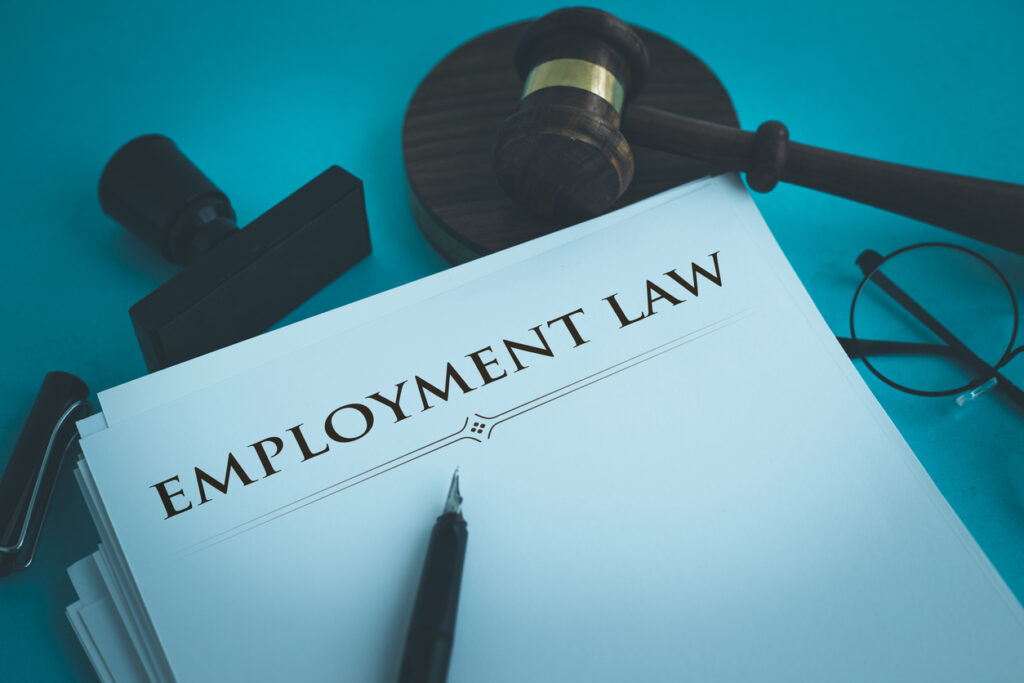12 Employment Laws in Colorado You Need to Know
Colorado employment law is complicated, and it’s impossible for us to give a complete rundown of all the key laws. An employment law attorney such as Elizabeth Lewis can help keep your business on the right side of the law. Here are a few of the major Colorado employment laws that you need to know, either as an employee or an employer.

Wages
In 2024, the minimum wage in Colorado is $14.42 for untipped employees, and $11.40 for tipped employees. Denver minimum wage is higher than Colorado’s so for any employees providing services in Denver, the minimum wage is $18.29 for untipped employees, and $15.27 for tipped employees.
When employees meet overtime requirements, employers must pay them 1.5 times their regular pay. Overtime triggers when an employee works:
- More than 40 hours in a week
- More than 12 hours in a workday
- More than 12 consecutive hours
Typically, this only applies to hourly employees. Provided that a salaried employee is exempt, then a salaried employee doesn’t earn overtime and may have a more difficult time managing expectations that they work additional hours each day and/or week. Salaried employees who are not exempt are still subject to overtime requirements.
Break Requirements
Employers in certain sectors (including, but not limited to, retail and service, food and beverage, commercial support services, and health and medical) must give employees a duty-free meal period of 30 minutes for every five hours worked. This break can be unpaid, but if employees have to eat while on duty or are otherwise required to be on-call, they should be paid.
A 10-minute rest break should be allowed for every four hours worked in these same industries.
Nursing mothers should be allowed to use their break time to express milk, and they should be provided with a private place (other than a toilet stall) to do so.
Leave Requirements
Colorado requires that employers give employees paid sick leave, which should accrue at a rate of at least one hour for every 30 hours worked. Employees can use this leave for many purposes, including preventive care, helping a family member, or absence due to domestic abuse, sexual assault, or harassment. Employees may also take unpaid leave (up to three days per 12 months) to deal with domestic abuse. This “sick time” is also available for bereavement leave in some instances.
There is no requirement for holiday leave or pay.
In addition, large employers and all employees (regardless of the size of the company they work for) must contribute to Colorado’s Family and Medical Leave Insurance Program (FAMLI).

Colorado Anti-Discrimination Laws
In addition to Federal anti-discrimination laws, Colorado bans discrimination on the basis of lawful activity outside of work, AIDS/HIV status, arrest or sealed convictions, marriage to a co-employee, bad credit, or wage garnishment for debt.
“Chance to Compete” Law
Similar to anti-discrimination laws, Colorado wants to help convicted criminals avoid discrimination in the early parts of the application process.
An employer may not advertise that people cannot apply for a position if they’re not convicted, nor may they ask for a conviction record on an initial application. (This doesn’t apply to specific positions where a person with a criminal history cannot hold the position.)
Record-Keeping Laws
Colorado law requires employers to maintain records of employees and wage payments for one, two, or three years, depending on the specific type of records.
Access to Personnel Files
Personnel files are not just for HR – each employee is entitled to view their own personnel files in Colorado. This includes viewing information about discipline records, and whether an employee is being considered for advancement. This only applies to written records – employers don’t have to tell employees about conversations regarding them where no formal notes are made.
Whistleblower Protection Laws
Employers cannot retaliate against employees for speaking out if they think people at work are committing crimes. This includes the waste or misuse of public funds if a company gets payments from the state.
Wage Discussion Laws
In Colorado, employees are free to talk about their compensation. Employers cannot ban discussion of wages, nor can they retaliate against workers who share their salary information with others.

Workers’ Compensation
In Colorado, most employers are required to maintain workers’ compensation insurance that pays for medical bills and lost wages in the event that an employee is injured on the job. The level of coverage required depends on the size and nature of the workplace.
Final Paycheck Requirements
When an employer fires an employee, they must provide a final paycheck for hours worked within six hours of firing. If the payroll office is closed at the time of the firing, the employer has until six hours into the next workday.
Labor Peace Laws
Colorado’s Labor Peace Act means that employees can’t generally be forced to join a union or pay union dues. However, they will still get benefits, such as higher wages, that the company extends because of union negotiations and settlements.
Don’t Run Afoul of Labor Laws in Colorado
Colorado labor laws are complicated, and it’s easy for an employer to find themselves on the wrong side of the law if they’re not careful. Working with an employment law attorney when starting your business or adding employees can help you avoid legal problems.
Since 2007, small business lawyer Elizabeth Lewis has been helping businesses in Colorado to comply with the complicated web of legal requirements, including federal laws, Colorado laws, and even local employment laws. She can help you write employment agreements that define the employer-employee relationship to avoid legal issues in the future.
Elizabeth also believes it’s important to form long-term relationships with her clients so she can be available to help whenever new problems arise. This can help you deal with changing laws or respond to new situations that come up with your employees.
To learn how a business attorney can help your company navigate the complex rules of employment law, please contact the Law Office of E. C. Lewis today for a free consultation. We serve small and medium sized businesses in Denver and throughout Colorado.

